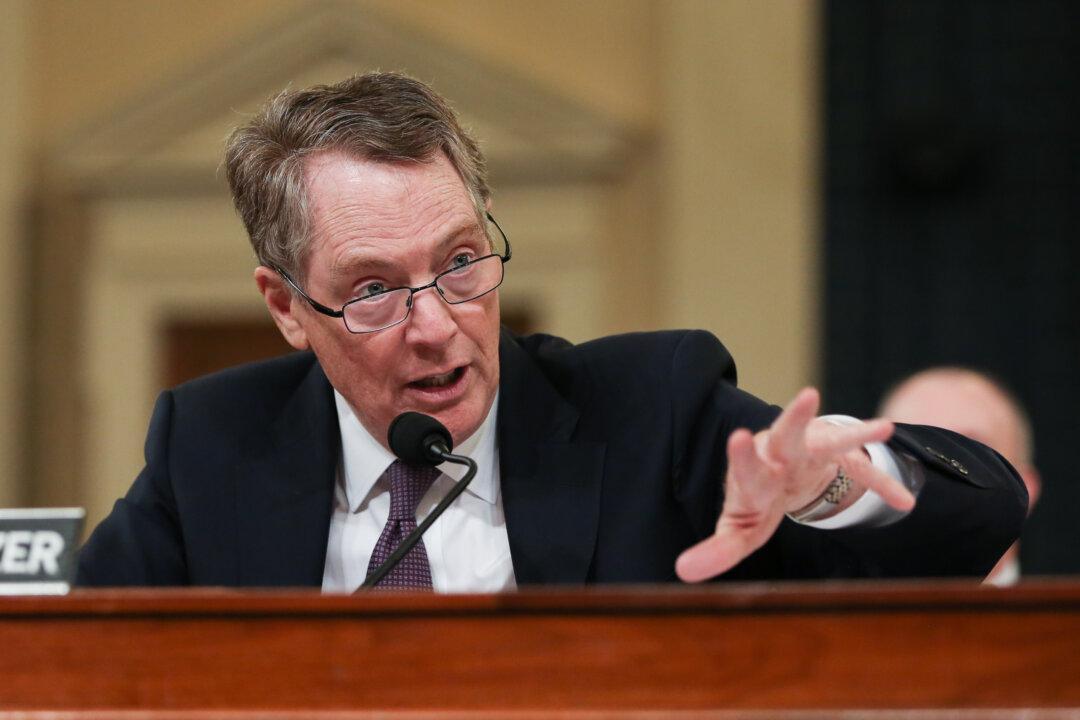The United States is making headway in pushing for structural changes within China’s economy as the two countries’ trade delegations engage in negotiations, U.S. Trade Representative Robert Lighthizer said on Feb. 27.
“We have engaged in a very intense, extremely serious and very specific negotiation with China on crucial structural issues for several months now. We are are making real progress,” Lighthizer told the House of Representatives’ Ways and Means Committee at a hearing on U.S.-China trade issues.





